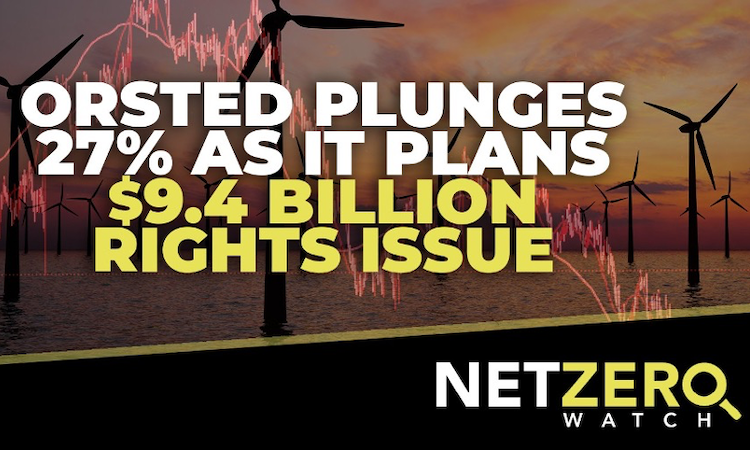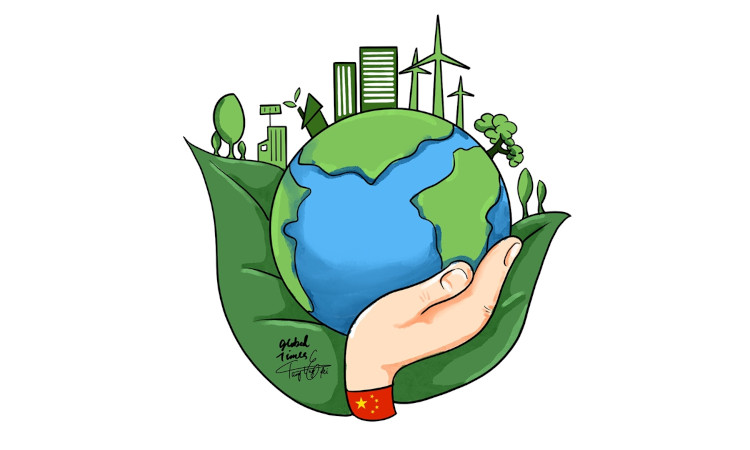From 2-15 December 2019, the United Nations climate change conference (COP25) was held in Madrid, Spain, attended by over 17,000 delegates hailing from almost every country in the world.
The conference was held under the auspices of the United Nations, based on the 1992 UN Framework Convention on Climate Change, which provides that every country on earth is treaty-bound to “avoid dangerous climate change”, and to find ways to reduce greenhouse gas emissions globally in an equitable way.
This treaty’s agenda is driven by stark scientific analysis which proves that global warming is gradually rendering our planet uninhabitable. But despite the existence of this international agreement, global warming has continued to climb.
“The world is now nearly one degree Celsius warmer than it was before widespread industrialisation, according to the World Meteorological Organisation (WMO).
“The 20 warmest years on record have all occurred in the past 22 years, with the years from 2015-18 making up the top four.
“The WMO says that if the current warming trend continues, temperatures could rise by 3-5C by the end of this century.
“A threshold of 2C had long been regarded as the gateway to dangerous warming. More recently, scientists and policymakers have argued that keeping temperature rise to within 1.5C is a safer limit for the world.
“But an IPCC report in 2018 suggested that keeping to the 1.5C target would require ‘rapid, far-reaching and unprecedented changes in all aspects of society’.” (COP25: Longest climate talks end with compromise deal by Matt McGrath, BBC, 15 December 2019)
If the bourgeoisie and its governments worldwide are concerned about climate change, we can be sure there is a problem, and an expensive one at that. Even though the 1.5C point has not yet been reached (although it is not many years away), the world is already experiencing really dire consequences of global warming.
“We got a preview of what ‘extreme temperatures in many regions’ looked like in 2018.
“In Pakistan, a May heatwave took temperatures above 110F (43.3C) and cost 65 lives in one city alone.
“Europe also had a taste of the new normal last summer, with temperatures soaring above 115F (46C) in Portugal. It wasn’t just Portugal either – the same heatwave roasted countries across the continent, breaking records and costing yet more lives …
“Higher temperatures are already dragging out droughts and wiping out crops. Himalayan glaciers that provide water to some 240 million people are already melting. Storms like Hurricanes Harvey, Irma and Marie are already getting stronger and more devastating thanks to climate change. The list goes on.” (Why is 1.5 degrees the danger line for global warming?, Climate Crisis Project, 18 March 2019)
Even as this article is being written, “the Amazon is burning, bush fires are raging in Australia and America, climate chaos is causing a humanitarian disaster every week”. (Climate crisis: what is COP and can it save the world? by Fiona Harvey, The Guardian, 2 December 2019)
World food supplies are already being devastated in certain areas. Take Iceland, for instance. The New York Times reports:
“Ocean temperatures around Iceland have increased between 1.8 and 3.6F over the past 20 years. For the past two seasons, Icelanders have not been able to harvest capelin, a type of smelt, as their numbers plummeted.
“Worldwide, research shows the oceans are simmering. Since the middle of last century, the oceans have absorbed more than 90 percent of the excess heat trapped by greenhouse gas emissions. To beat the heat, fish are moving toward cooler waters nearer the planet’s two poles.”
Not only is climate change-induced fish migration having catastrophic effects on the livelihoods of fishing-based communities in Iceland, but it is also affecting oceanic biodiversity. Such huge changes are already posing a fatal threat to many oppressed and impoverished peoples living in poorer countries close to the equator.
“Cod, which this year brought in record profits of $1bn, feed on capelin. But Mr Birgisson said the best place to fish for cod was where warmer ocean temperatures meet colder ocean temperatures, and that is increasingly moving north in keeping with global patterns.
“Different species of fish evolved to live in specific water temperatures, with some fish like sea bass requiring the temperate ocean climates like those found off the mid-Atlantic region of the United States, and tropical fish like the Spanish hogfish preferring warmer waters such as those in the Caribbean.
“But these days, fishermen are finding sea bass in Maine and the Spanish hogfish in North Carolina. And as the fish flee they are leaving some areas, like parts of the tropics, stripped of fish entirely.”
Thus we see that the continual northward migration of fish poses a perilous threat to people who live in the Mediterranean and Europe as a whole now that ever-larger strips of ocean are being deprived of fish. There is only so far north the fish can travel until not only the fishing industry is decimated, but the entire global food supply is dangerously curtailed.
This is especially the case for tropical areas. As they heat, these places are likely to see a total desertion of marine life; places where people rely on fish for 70 percent of their nutrition. Unironically, tropical areas are home to a large proportion of the oppressed countries and peoples who emit miniscule volumes of carbon dioxide.
Rashid Sumalia, director of the Fisheries Economics unit at the University of British Columbia, comments: “My mom is from Ghana, my dad is from Nigeria, and I tell you that for many people along the coast the only animal protein they get to eat is fish – and the fish are moving.” (Warming waters, moving fish by Kendra Pierre-Louis, New York Times, 29 November 2019)
With global temperatures inexorably rising, these problems for the world and its inhabitants can only get worse, especially if the warming reaches 2 degrees above pre-industrial averages:
“Going from 1.5 degrees of global warming to 2 degrees could mean:
– 1.7 billion more people experience severe heatwaves at least once every five years.
– Seas rise – on average – another 10cm (almost 4in).
– Up to several hundred million more people become exposed to climate-related risks and poverty.
– The coral reefs that support marine environments around the world could decline by as much as 99 percent.
– Global fishery catches could decline by another 1.5m tonnes.
“Bottom line: Going above 1.5 degrees of warming puts millions more at risk of potentially life-threatening heatwaves and poverty. It all but wipes out coral reefs that entire ecosystems rely on worldwide. Seas swallow even more of our cities. And that’s just for starters.” (Climate Crisis Project, op cit)
What is to be done?
Scientific experts believe that it is still possible to avert this disaster and to keep warming below 1.5 degrees, but not without cost. Experts commissioned by Chatham House have estimated:
“In terms of the investment required, it’s not beyond the means of investors. To achieve a 1.5C world, we need to invest around 2.8 percent of global GDP into the energy system between now and 2050. This sounds like a lot of money, but even if we weren’t aiming for 1.5C, we’d be investing around 2 percent of global GDP into the energy system, because the world needs energy one way or another.” (Hitting 1.5C: The stark climate choices for governments, 18 October 2018)
Yet 17,000 climate experts from all over the world meeting in Madrid in December 2019 for over two weeks were unable to come up with any workable plan as to how this very modest goal could be met.
It is generally accepted that global warming is caused by carbon emissions, and that it is only by a very substantial reduction of these that crisis can be averted.
“Time is running out: the IPCC has concluded that on current rates we have little over a decade to halt emissions growth and bring down carbon rapidly to keep warming within the 1.5C threshold.
“Current commitments made by national governments under the Paris agreement fall far short of what is required [and even those are not generally being met!] – taken together, they would still condemn the world to an estimated temperature rise of more than 3C by the end of the century.
“According to the UN’s latest ‘emissions gap’ report, published a few days before the start of this year’s talks, countries must reduce their greenhouse gases by about 7.6 percent a year for the next 10 years, to stay within the 1.5C limit.” (The Guardian, op cit)
Dr Petteri Taalas, secretary general of the World Meteorological Organisation rather stated the obvious when he said: “The only solution is to get rid of fossil fuels in power production, industry and transportation.”
Given that the solution is so simple and straightforward, how come 17,000 climate experts could not in over two weeks come up with a viable solution? The answer lies in the imperialist domination of the world.
Climate change – a class question
Just as the national question, and the question of imperialism, is thoroughly rooted in the question of class, so too must the climate change question be situated in the context of the class struggle.
Who benefits from the overproduction of commodities that rapaciously exhausts the planet of its finite resources and recklessly pollutes the Earth’s atmosphere? Congolese miners who risk their lives scavenging for lithium, unable to provide an adequate living for their families? Sweatshop employees in Indonesia, again, unable to support their families?
How about ‘first-world’ consumers, working ten-hour shifts at their meaningless jobs in the service sector, brainwashed into spending their hard-earned wages on commodities to opiate themselves from their miserable conditions? Or is it, perhaps, the Wall Street investment banker? Tell us why climate change is not a class issue!
The progressive – or in some cases regressive – green wave in mainstream politics faces significant obstacles in satisfying the green agenda, as Counterpunch writer, Vijay Prashad has spelled out:
“1. The right wing that denies climate change;
“2. Sections of the energy industry that have a vested interest in the continuation of the use of carbon-based fuels;
“3. The refusal by the western advanced countries to admit both that they have caused the problem and that they should use their vast wealth to finance the transfer from carbon-based fuels to other fuels in countries whose wealth has been siphoned off to the west.” (Wealthy countries’ approach to climate change condemns hundreds of millions of people to suffer, Counterpunch, 4 December 2019)
Prashad has correctly identified that the first two obstacles are intimately linked: big energy companies have such a determined interest in the continuation of carbon-based fuel usage that they will lobby climate change deniers in politics – as is a big problem with the US Republican party.
“Why have Republicans become the party of climate doom? Money is an important part of the answer: In the current cycle, Republicans have received 97 percent of political contributions from the coal industry.” (The party that ruined the planet by Paul Krugman, New York Times, 12 December 2019)
This goes a long way to explaining why US president Donald Trump is pulling the United States out of the Paris Climate Accord.
In the case of Britain, Jeremy Corbyn received significant media slander and attacks as his platform for the renationalisation of the energy sector, opting for a greener direction, since this essential move poses a threat to the superprofits of the energy giants.
Regarding the third point, the problem can be summed up with one word: imperialism. The historic catastrophe that was colonialism, and the ongoing exploitative economic relations between the imperialist core and the oppressed countries, will be a primary factor in how each country ought to approach this issue.
As the UN Framework Convention on Climate Change (UNFCCC), drawn up at the 1992 Earth summit in Rio de Janeiro, points out:
“The largest share of historical and current global emissions of greenhouse gases has originated in developed countries, per capita emissions in developing countries are still relatively low and the share of global emissions originating in developing countries will grow to meet their social and development needs,
“The global nature of climate change calls for the widest possible cooperation by all countries and their participation in an effective and appropriate international response, in accordance with their common but differentiated responsibilities and respective capabilities and their social and economic conditions.”
Prashad has given an excellent elucidation on the UNFCCC’s statement:
“The main phrase here to consider is ‘common but differentiated responsibilities.’ This means that the problem of climate change is something that is common to all countries, and that no one is immune to its deleterious impact; at the same time, the responsibility of countries is not identical, and some countries – which benefited for centuries from colonialism and carbon fuel – have a greater responsibility for the transition to a less damaging energy system.” (Counterpunch, op cit)
Taking such conclusions into consideration, the UNFCCC created what seemed to be a sound and well-thought through project known as the ‘Green Climate Fund’ (GCF). Such a fund entailed the west making a far higher financial contribution to mitigate the class-based injustice of climate change. The west would be “asked to make substantial contributions to the fund, whose capital would then be used to assist developing countries to ‘leapfrog’ carbon-fuelled social development”. (Ibid)
The goal was to raise $100bn. Leading social-democratic figures took this goal seriously and approached it with honourable intentions. Former US Democrat candidate Bernie Sanders pledged $200bn, whilst Jeremy Corbyn pledged to steer the World Bank’s climate investment fund toward a policy of climate justice for the ‘global south’.
Predictably, however, the GCF was doomed to be a total failure from its very inception, especially as we’ve seen the US and Australia pulling out of the fund altogether. This was down to two fatal factors:
1. The fundraising goal was too conservative. Even if Sanders somehow ascended to the US presidency and honoured his $200bn commitment, the International Energy Agency estimates that the sum required for a serious mitigation of climate change is in the trillions.
2. Any commitment to orient imperialism toward a policy of climate justice for the less developed countries is inherently antithetical to imperialism, which survives by sucking the life blood out of these countries by appropriating surplus wealth that ought to go towards those countries’ development.
Moreover, the masses of people left behind in imperialism’s race for ever greater profits often have no choice if they are to survive at all than to turn to such measures as destroying jungles and burning coal. They cannot be prevented from doing so unless they are provided with resources that make such activity unnecessary.
Imperialism’s desperate need to extract maximum profit at the expense of the wellbeing of the people of the whole world makes it impossible to secure imperialist cooperation in the reduction of greenhouse gases. The 20 richest countries in the world produce two-thirds of these gases and need to make the greatest cuts, but this will not happen unless it can be done at a profit for themselves – eg, by selling electric cars and LED light bulbs.
Imperialism and war
It cannot be denied that many capitalist countries are taking a few timid steps to reduce dependence on fossil fuels – eg, by promoting wind farms and solar energy. London, for example, has introduced a few ‘carbon-neutral’ buses.
However, not only is progress in this direction hampered by interference from powerful capitalist enterprises that fear for their profitability, but, in addition, any progress that might be made is bound to be wiped out by another inevitable characteristic of imperialism, which is its inevitable periodic resort to war – and to war with ever greater weapons quite literally of mass destruction.
A study from Brown university’s Cost of War project found: “The US Department of Defence has a larger annual carbon footprint than most countries on earth. With a sprawling network of bases and logistics networks, the US military is the single biggest emitter of carbon dioxide in the world aside from whole nation states themselves.
“Indeed, the DoD is the world’s largest institutional user of petroleum and, correspondingly, the single largest producer of greenhouse gases in the world,” the report notes. (Our emphasis)
If the Pentagon were a country, it would be the world’s 55th biggest emitter of carbon dioxide. And its main purpose – warfare – is easily its most carbon-intensive activity. Since the present era of American conflicts began with the invasion of Afghanistan in 2001, the US military is estimated to have emitted a staggering 1.2bn tons of carbon into the atmosphere.
For comparison, the entire annual carbon emissions of the United Kingdom are roughly 360m tons.
Aware that millions of people all over the world are realising the urgency of acting against climate change, imperialism has reacted in a typical manner to divert attention away from its own culpability towards getting ordinary people to blame each other and themselves.
Thousands of well-meaning people have taken to veganism after the imperialists have convinced them that they can make a real difference by eschewing animal products, and vegan ‘activists’ try to bully others to join them in their madness, while firmly closing their eyes to the imperialist rape of the planet and warmongering.
The communist solution is simple: it does not entail fundraising campaigns, it entails fighting for system change. It would be worth trillions in of itself if we reoriented the British economy from a rapacious drive for profit to a centralised planned economy.
Such an economy would prioritise a reduction of carbon emissions, protecting British industry and putting the needs of British workers first.
Communists aim to achieve such aims by uniting the proletarian struggle in the imperialist core with the national-liberation struggle in the oppressed countries. In short, we achieve such aims through upholding proletarian internationalism.
This is the only way to guarantee climate justice in less developed countries and to unite the whole world behind the project of becoming universally carbon-neutral and rehabilitating the earth’s ecosystems.
Sadly, imperialism has a different solution to the climate crisis. Last November, the Association of Southeast Asian Nations (ASEAN) held a conference hosted by UN general secretary, Antonio Guterres, which made three proposals for tackling climate change:
“1. Taxes must be placed on carbon emissions.
“2. Trillions of dollars of subsidies for fossil fuels must end.
“3. Construction of coal-fired power stations must end by 2020.”
Vijay Prashad has elucidated the total inequity of these proposals:
“These three proposals would directly strike at the energy sources for countries that have not yet provided electrification for their populations, or where their people are far from the UN’s sustainable development goals. Southeast Asia, where Guterres made these remarks, only anticipates full electrification of the region by 2030.” (Op cit)
What does this teach us? That any attempt to work out a solution for climate change will inevitably be regressive and reactionary unless the context of imperialism and the history of colonialism is taken into account.
Such one-size-fits-all policy places oppressed nations in an intolerable predicament: either pursue social development, ameliorating the miserable conditions of the masses of the oppressed and superexploited countries, or toe the line of green imperialism. The latter’s ‘solutions’ not only maintain the system of imperialism, but entrench it by transferring the burden of eco-austerity onto the oppressed countries.
That is why such solutions are entirely acceptable to imperialism; that is why much of the green movement is welcomed into mainstream politics without a shot being fired.
Don’t blame China!
Particularly regressive arguments for and against taking action on climate change entail resting the blame on China and India as the ‘largest polluters on Earth’.
Anyone spewing such arguments can be charged with polluting workers’ minds with ignorance. To fail to take into account the fact hat the two countries are home to nearly three billion people between them is ignorant at best, and deceitful at worst.
Before the earth-shattering communist revolution and national liberation of China; before the great Mao Zedong declared: “The Chinese people have stood up”, European and Japanese colonialism laid waste the Chinese mainland through decades of the most brutal humiliation and exploitation.
It is utterly nauseating for right-wing pro-imperialist pundits today to be trying to shame such countries as China for taking a stand, challenging imperialist domination, and pursuing their own course of development. It is especially nauseating when such pundits do so on spurious grounds of environmental concern, giving their imperialist bile an apparently progressive facade.
Prashad gives a more balanced analysis on the ecological impact of China and India’s development situating such analysis in a sound geopolitical context:
“The extreme inequalities between the standard of living for the average European (742 million people) and the average Indian (1.4 billion people) is as stark as it was a century ago.
“The reliance by China, India, and other developing countries on carbon – particularly coal – is high; but even this use of carbon has not raised the per capita emissions of China and India above that of the United States, whose per capita emissions are almost twice as much as China’s.” (Ibid)
Even with the significant disadvantages and challenges facing China, the People’s Republic by no means takes a relaxed approach to the issue of climate change. On the contrary, in spite of its disadvantages and challenges, China has heroically become a world leader in the global green revolution.
It is a world leader in capacity for renewable power production; its rate of increase of wind power is more than three times that of the US, thereby leading the world; China overtook Germany as the world leader of solar energy in 2015; China has been the only country investing over $100bn in renewable energy since 2015; China has been pivotal in facilitating countries categorised as ‘developing’ to overtake ‘developed’ countries in investments in renewable energy. (China has become a green energy superpower, World Economic Forum, 25 June 2016)
Such staggering achievements are a glorious testament to the successes associated with China retaining state ownership of an important section of the economy, making it possible to implement policies of reducing dependence on non-renewables that in the long run will enhance the competitiveness of Chinese industry.
Unlike imperialist countries, which nowadays have so degenerated that they are as a matter of course sacrificing the future for the sake of immediate profits, China is still capable of planning ahead. Not only is China leading the world in a renewable carbon-neutral revolution within its borders, but it is helping downtrodden countries to become part of that green revolution and to develop their socioeconomic conditions.
Our duty, however, is to work for Britain, the fifth-largest economy in the world, to orient itself toward a centralised planned economy. Imagine the phenomenal contribution we could make toward a global green revolution, if only we got rid of the billionaire parasites that exploit the global masses and the globe itself with reckless abandon. Turning this image into a reality should be our contribution to saving the planet.
Next year, COP26 will be held in Glasgow. Let communists make their preparations and help to populate the simple message that you have to be red to be green!
















